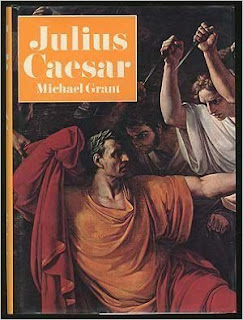Monday, September 10, 2018
Thursday, June 28, 2018
Sunday, October 8, 2017
The Mad Monarchist: The Empire of Lies
The Mad Monarchist: The Empire of Lies: One of America's most important "Founding Fathers" once referred to his vision of the United States of America as an "E...
Saturday, October 7, 2017
Sunday, March 19, 2017
ELVIS by Albert Goldman
Elvis fans HATE this book. Albert Goldman's muck raking biography published in 1981 still rankles Elvis lovers. Goldman went on to write a similarly received biography of John Lennon in 1988. Goldman died of a heart attack on an airplane in 1994.
Elvis and girlfriend Linda Thompson
who Goldman says had to dodge bullets coming through the bathroom wall.
Albert Goldman and his muck raking book
Young Elvis being mobbed by the girls.
Reading Goldman's Elvis was a perverse pleasure. Hard core Elvis fans will still be offended, but I found it to be a lot of fun.
Friday, August 26, 2016
William Tecumseh Sherman: In the Service of My Country
I just finished reading Professor James Lee McDonough's wonderful new biography of General Sherman. This is a traditional "old school" biography which tells the story of the subjects life in a narrative form.
Sherman is a truly fascinating character. His father, a lawyer and early justice of the Ohio Supreme Court, had an admiration for the Seneca Chief Tecumseh who tried to unite the Indian tribes to fight the United States. Sherman's father died when Sherman was nine years old. Being unable to care for her children, Sherman's mother divided up the children and sent them to live with various family members and friends. Sherman was sent to live with the family of U.S. Senator Thomas Ewing. Ewing's wife was staunchly Catholic and raised all of her children as Catholics. Although raised in a devout Catholic home, Sherman always refused to accept the Catholic faith. Sherman eventually married Ellen Ewing whom he had been raised with. Ellen was a very devout Catholic and reared all of the Sherman children in the Catholic faith. Ellen's staunch religious views would be a source of contention between her and "Cump" (Sherman's childhood nickname) for the rest of their lives.
Sherman during the Atlanta Campaign
Sherman in later life.
Resigning his position in Louisiana after that State seceded from the Union, Sherman returned to the army and led a division with some distinction at the battle of First Bull Run. As a commander in Kentucky early in the war, Sherman had what can only be described as a nervous breakdown. Sherman realized that Southerners intended to fight to the bitter end and that it would be a long and bloody war of conquest. Everybody thought Sherman was crazy and he was almost sent home in disgrace. Fortunately, General Grant salvaged Sherman's career and gave him command of an army corps. As Sherman was later to write, "Grant stood by me when I was crazy, and I stood by him when he was drunk. Now we stand by each other always."
Professor McDonough goes into great detail regarding Sherman's generalship. Sherman disdained large battles with huge loss of life and sought to carry on a war of maneuver. McDonough has high praise for Sherman's generalship, although he sees the march through the Carolinas as much more challenging than the vaunted "March to the Sea."
Sherman's relationship with African Americans is also interesting. Sherman was a racist who often employed the "N" word. He believed that blacks were inferior and should not be given full citizenship. After the war, Sherman advocated ending reconstruction and giving control back to former Confederates so long as they were now loyal to the Union. Sherman's career after the war sees him leading the U.S. Army's efforts against the Plains Indians. Although Sherman generally felt that the Indians had been mistreated by the whites, he clearly saw them as inferior to whites and made some statements to the effect that it might be better to just wipe some of the tribes out altogether.
James Lee McDonough, Professor Emeritus of History, Auburn University
Wednesday, February 24, 2016
Julius Caesar: A Biography
Michael Grant (1914 - 2004) was a prolific freelance historian who wrote many books of "popular history" on the history of the Greeks, Romans and other ancient cultures. Over the course of a long weekend vacation, I read Grant's 1969 short biography of Caesar, which has been republished many times in many different editions.
This short book (187 pages) is more of an overview of the life and career of Caesar than an in-depth study. It is, nevertheless, filled with fascinating facts. If you think that our current politics in the United States are a mess, it hasn't gotten as bad as the late Roman Republic yet. At least bribery and assassination have not become the norm. Grant recounts that during several elections there was so much money being borrowed to finance bribes to fix the election, that the interest rates rose. Also, the more things change, the more they stay the same. I read my wife, who is a bankruptcy attorney, a passage from the book detailing how Caesar as dictator basically introduced a primitive form of bankruptcy protection for debtors. Grant also recounts how, because there was a shortage of gold and silver that many estates were being foreclosed on. Because there was a glut of foreclosed real estate on the market, the property sold for much less than was owed on it. My wife asked, "When was this?" I said, "49 B.C." She said"Sounds like the 2007!"
Grant also gives a good overview of Caesar's military campaigns. Caesar waged what we would consider genocide against a number of Gaulish tribes which gained him money and fame. Caesar's famous Commentaries were written to inflate his reputation at home to help him gain and keep political power.
I just thought this picture of Lictors carrying the Fasces was cool!
Michael Grant (1914 - 2004)
Subscribe to:
Comments (Atom)















